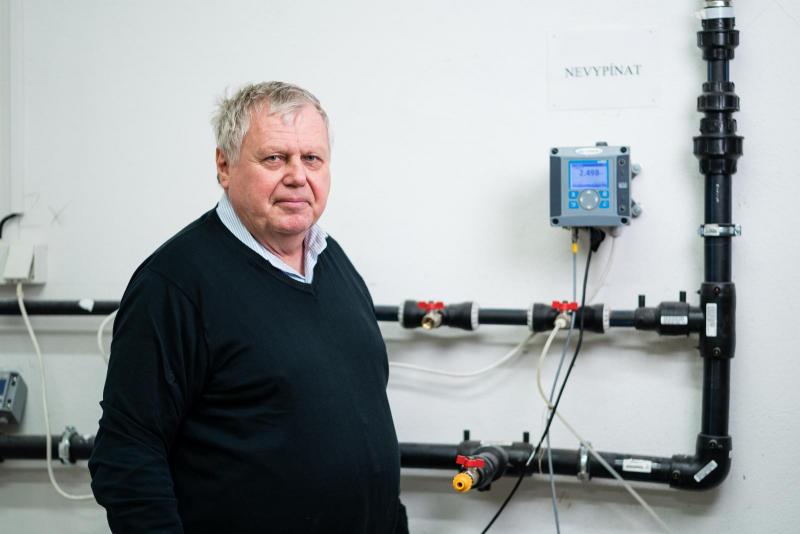Topic
Water losses in the Czech Republic reach 15 percent, the situation is getting better every year

As a result of damaged water supply infrastructure, around 15 % of the water intended for supplying customers is lost in the Czech Republic every year. The share is gradually decreasing - thanks to regular maintenance, renewal and monitoring of the water supply network. 370 experts from 58 countries came to Prague to share their know-how on how to effectively reduce water loss at the Water Loss 2022 conference. After 21 years, the event was again held under the auspices of the Czech Water Association.
In a historical comparison, the Czech Republic is doing well - water losses in 2021 were around 15 %, while in the 1990s they reached up to 40 %. In the case of large cities, the current percentages are even slightly more favourable - in Brno it was around 12% in 2021. Even in an international comparison, the Czech Republic is not doing badly - within the European Union, it ranks above the average, and only Germany, Denmark, Finland, Estonia and the Netherlands are better off.
In addition to the so-called obvious water leaks, which include visible water pipe failures, water losses also include hidden leaks, for example when older water pipes fail to seal properly. At the same time, detecting such defects is time- and economically demanding.
"Prague, Brno and other cities are now testing the use of satellite images that are able to detect potential locations of hidden water leaks. The search teams from the water works will then locate the exact location using a correlator - a device that detects the noise of leaking water," Ladislav Tuhovčák from the Institute of Municipal Water Management FCE BUT, who founded the Water Loss conference 21 years ago and participated in its organization this year, explains.
However, it is not always efficient for water companies to repair problem areas with hidden water leaks. "As a result of climate change and increasing drought, there is an effort to not waste water around the world. However, the approach varies from country to country - in some locations in Norway, water losses amount to around 40%, because they do not have to draw it expensively from underground sources. Thanks to gravity, very high-quality water flows from the lakes. Therefore, they invest more in the overall restoration of the network than in the search for individual leaks and their repairs. On the other hand, in locations where water sources are insufficient, such as Israel, Italy or Greece, water loss is a big problem," Tuhovčák explains.
The theoretical lifetime of the water infrastructure is estimated at 80–100 years. In order to avoid higher losses of water in the future, its renewal should average around 1 % per year. But the Czech Republic does not reach such a pace. "It is also thanks to the fact that the water supply networks in our country are managed by a large number of operators. Privatization of the water supply industry in the 1990s meant that there are almost 6,000 public water supply operators per 10 million inhabitants. In contrast, Holland, for example, has 10 waterworks for 17 million inhabitants," Tuhovčák adds.
Water losses are not only an ecological problem, but also an economic one. The current water infrastructure in the Czech Republic is mostly oversized and does not correspond to the ever-lower water consumption. 30 years ago, the average water consumption per inhabitant was more than 200 litters per day, while in 2021 it was 93 litters. This resulted in a decrease of more than 50 %.
"It's a dead end. We say to ourselves - we have a drought, we will save. But if we save water, it will be many times more expensive, because the operation of water plants needs to be paid for from something. And it is becoming more and more expensive thanks to the currently rising energy prices. That is why water and sewage increased by more than 15 % in 2023. In addition, lower water consumption increases the ratio of water losses to water paid by the consumer," Tuhovčák concludes.
The European Union has also focused on water losses, which from 2022 requires member states to implement a strategy to prevent water losses. According to an expert from the Institute of Municipal Water Management FCE BUT, the sharing of international experiences of water managers at the Water Loss 2022 conference offered useful know-how.
Soil erosion will be prevented by strip crop rotation technology
BUT experts address climate challenges, floods, and the future of Czech water
FCE researchers' timeless natural wastewater is one of the best construction in the region
Microplastics in drinking water will increase
Software as a bachelor thesis helps with soil erosion research